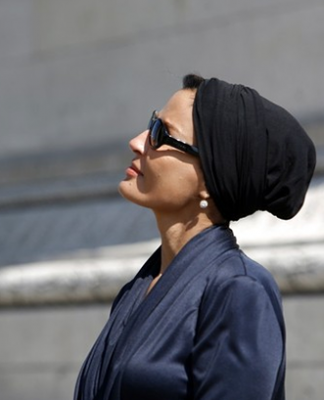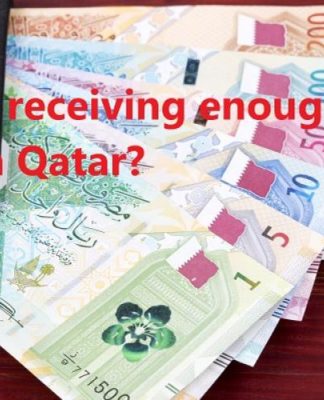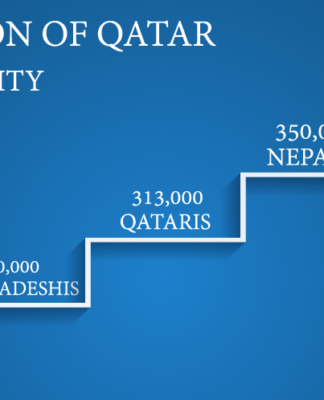The rise and fall of BlackBerry – and why director thinks world may be ready for its return
BlackBerry hasn’t been a feature of the smartphone market for several years, but the once all-conquering gadget returns to the public consciousness in… BlackBerry – a comedy biopic starring Jay Baruchel, Glenn Howerton, and director Matt Johnson.
By Tom Acres, technology reporter
Sunday 1 October 2023 09:29, UK
Listen to this article
0:00 / 8:23
1X
BeyondWords
Audio created using AI assistance
Blackberry devices are used in Los Angeles March 3, 2006. Research in Motion, the Canadian-based company that manufactures Blackberry handheld devices, announced March 3, 2006 it has signed a definitive settlement ending a patent dispute that threatened to shut down its e-mail service in the United States. RIM said it paid U.S. patent holding firm NTP Inc. $612.5 million to settle the dispute. REUTERS/Mario Anzuoni
Why you can trust Sky News
With the latest iPhone now in people’s hands and Google’s annual Android flagship not far behind, it’s a pertinent time to release a film about the once iconic device that paved the way for both.
BlackBerry hasn’t appeared alongside them on shop shelves for years, and any remaining devices were effectively killed off last January when the company behind them ceased support.
It was an undignified end for a gadget that changed the world, one that became not just ubiquitous with boardrooms and offices (including a certain oval-shaped one), but a true fashion statement.
Thrusting it back into the spotlight in 2023 is director Matt Johnson, who hails not far from BlackBerry’s Ontario HQ.
And yet, against all odds, he says he has no history with the world’s first smartphone whatsoever.
“The timeline of the product was one of the main things I was interested in,” the 37-year-old says.
“A film about the late 90s/early 2000s shift from a more analogue world to a more digital world.
MOST READ
First aid trucks enter Gaza as border crossing with Egypt opens; US warns of ‘potentially chaotic’ situation | War latest
Father of freed teen hostage shares update on her condition – as Hamas issues video of release
‘Significant risk to life’: Severe flood warnings as Storm Babet batters parts of UK; football games called off | Latest updates
What Hamas’s release of US hostages could mean for Israel’s expected ground offensive in Gaza
Italian prime minister splits with partner after ‘threesome’ comments
Watch Live
Videos
“That’s when I was quite young and a great opportunity to explore that cultural space, all where I grew up.”
The exterior of one of the Research In Motion Limited (RIM) buildings is seen in Waterloo July 10, 2012. Research In Motion Ltd's slate of directors was re-elected at the BlackBerry maker's annual general meeting on Tuesday, Chairwoman Barbara Stymiest said. REUTERS/ Mike Cassese (CANADA – Tags: BUSINESS)
Image:
Research In Motion was based in Waterloo, Ontario
‘Hacker-style’ nerds who changed the world
BlackBerry (the film, not the product) picks up in 1996 at tech firm Research In Motion.
At the time, its ragtag crew of engineers are unaware they’re working on perhaps their country’s most famous export since maple syrup.
Mike Lazaridis (Jay Baruchel) and friend Douglas Fregin (Johnson) suspect their “PocketLink” idea for a phone that does email is good, but lack the business sense to turn concept into reality.
Mike Lazaridis, President and co-chief executive officer of Research in Motion (RIM), waits to speak at the Empire Club of Canada luncheon in Toronto March 2, 2006. Lazaridis stated in his speech that RIM is still keen to resolve a bitter patent dispute with NTP Inc. and avoid an injunction that would shut its U.S. BlackBerry service. REUTERS/Mike Cassese
Image:
BlackBerry’s president Mike Lazaridis and (below) in the film, played by Jay Baruchel
Jay Baruchel as Mike Lazaridis. Pic: National Amusements/Piece Of Magic Entertainment
Image:
Pic: National Amusements/Piece Of Magic Entertainment
Johnson says they were interested in solving practical problems, but had “no vision of a cultural revolution”.
Enter the ruthless and opportunistic Jim Balsillie (Glenn Howerton), who sees enough potential in the pitch to brute force his way into becoming co-CEO and set up a pitch with the US telecoms giant that would become Verizon.
Research in Motion Ltd. Chairman and Co-CEO Balsillie reacts during his speech at Fortune Global Forum in Beijing. Research in Motion Ltd. Chairman and Co-CEO James L.Balsillie reacts during his speech at the last day of Fortune Global Forum in Beijing May 18, 2005. The forum which attracted more than 800 participants, including CEOs, chairpersons and presidents of Global 500 firms and domestic enterprises, top government officials and renowned scholars, to brainstorm in the Chinese capital wil
Image:
BlackBerry’s co-CEO Jim Balsillie and (below) Glenn Howerton
Glenn Howerton as Jim Balsillie. Pic: National Amusements/Piece Of Magic Entertainment
Image:
Pic: National Amusements/Piece Of Magic Entertainment
The film, based on the book Losing The Signal, takes some liberties with the BlackBerry story – and the real players involved have said some portrayals are closer to satire.
Balsillie’s depicted as a hilariously foul-mouthed demon of the boardroom, while Lazaridis and Fregin lead a team of “almost hacker-style” nerds who love video games and office film nights.
What the film undoubtedly nails is the BlackBerry brand’s ascendancy to stardom.
The film presents the RIM team as a ragtag crew. Pic: National Amusements/Piece Of Magic Entertainment
Image:
The film presents the RIM team as a ragtag crew, including Lazaridis (left) and Fregin (in headband). Pic: National Amusements/Piece Of Magic Entertainment
Cracking the market
The first device in 1999 had email and two-way paging, with a keyboard and modest monochrome display.
By 2002, calls, texts, and internet browsing were features of an increasingly popular product with business types.
But the game-changing launch of BlackBerry Messenger in 2005 took it truly mainstream, bringing WhatsApp-style encrypted messaging we now all take for granted.
The world’s addiction to typing on the go saw “CrackBerry” named Webster’s Dictionary’s word of 2006.
It was the phone of choice for millions of people, endorsed by celebrities and even the US president.
At its peak, BlackBerry controlled almost half of the global smartphone market.
Writer/Actor Larry David (L) has a look at director Spike Lee's blackberry phone as they sit courtside at Game 1 of the NBA Western Conference final basketball playoff game between the Los Angeles Lakers and the Denver Nuggets in Los Angeles, May 19, 2009. REUTERS/Lucy Nicholson (UNITED STATES ENTERTAINMENT SPORT BASKETBALL)
U.S. President Barack Obama uses a Blackberry device as he makes his way toward the Oval Office at the White House in Washington, January 29, 2009. Obama was allowed to keep the Blackberry after security modifications were made. REUTERS/Jason Reed (UNITED STATES)
Image:
Anyone who’s anyone wanted a BlackBerry
Apple makes its move
But 2007 heralded the iPhone – and the world would be about to change all over again.
Steve Jobs ruthlessly mocked the BlackBerry’s reliance on a keyboard during the grand unveiling, as observers swooned over the large multitouch display in his hand.
For many analysts, it marked the beginning of the end for BlackBerry.
Pic: AP
Image:
Steve Jobs unveils the iPhone. Pic: AP
For Johnson, it wasn’t necessarily the iPhone itself that killed the BlackBerry – but its creators’ response to it.
It saw the company hastily assemble a Frankenstein-like competitor which tried to combine a touchscreen with the satisfying clicks of a physical keyboard.
“It’s a keyboard… on a screen… on a keyboard,” is how Baruchel’s Lazaridis pitches it to his engineers, tragically unconvincingly.
The resulting BlackBerry Storm, released in 2008, was a disaster.
Issues with the new touchscreen, which had one enormous button underneath, saw Verizon have to replace all one million devices it sold and claim $500m in losses.
A Research In Motion BlackBerry Storm is pictured in New York, November 20, 2008. Verizon Wireless is betting on the new BlackBerry Storm for the all-important holiday season, hoping the highly anticipated smartphone can compete against the iPhone offered by rival wireless provider AT&T Inc. REUTERS/Lucas Jackson (UNITED STATES)
Image:
The BlackBerry Storm was a direct attempt to cash in on the excitement around the iPhone
‘How do you do, fellow kids?’
It put the Canadian company on the back foot, and left its executives grappling with an identity crisis as Apple’s trendsetter went from strength to strength.
BlackBerry still had its loyal users, with one Barack Obama among those happily using them for years after.
The company even welcomed Queen Elizabeth II for a visit to its headquarters in 2010.
But by then it was clear the company’s direction had become muddled, and the masses and phone carriers were batting their eyelids in the iPhone’s direction.
BlackBerry had gone from status symbol to “how do you do, fellow kids?” in the blink of an eye
Britain's Queen Elizabeth tours Research in Motion, maker of the handheld device Blackberry, in Kitchener, Ontario July 5, 2010. REUTERS/Fred Thornhill (CANADA – Tags: SCI TECH ROYALS BUSINESS)
Image:
‘How does one text Philip?’
Blind revolutionaries
Johnson sees BlackBerry’s downfall as a cautionary tale, but also something of a tragic one.
“They set up the scaffolding for a revolution, but then didn’t realise one was about to happen,” he says.
“It wasn’t that the iPhone was just a better product,” says Johnson.
“It had more to do with the vision of a company like Apple compared to Reality In Motion.
“People say they’re part of the ‘Apple ecosystem’ – the brand means more than the products.
“BlackBerry just did not do that and weren’t interested in that.
“And by the end, those original engineers end up so disillusioned and alienated from the thing they built, I don’t think they even believe they built it.”
The moment the iPhone is announced as portrayed in the film. Pic: National Amusements/Piece Of Magic Entertainment
Image:
The moment the iPhone is announced as portrayed in the film. Pic: National Amusements/Piece Of Magic Entertainment
BlackBerry kept chipping away at iPhone-style touchscreen devices, but found itself swimming against a tide made even stronger by the popularity of Android.
In 2016, the firm gave up making phones and transitioned to being a software security business, licensing out the BlackBerry name for other manufacturers to give it a shot.
The last hurrah was 2018’s BlackBerry KEY2 LE from China’s TCL, an awkwardly assembled jack of all trades that unceremoniously stuck a keyboard at the foot of a touchscreen.
It could hardly have been further away from Lazaridis’s original “texts, calls, email” vision for a phone, one which Johnson thinks might yet make a significant return.
Jim Balsillie, co-chief executive of Research In Motion (RIM), holds the new Blackberry Bold handset during its launch in Mumbai September 18, 2008. Research in Motion Ltd will add new carriers in fast-growing emerging markets, and does not yet see an adverse impact from a widening global financial crisis, Balsillie said on Thursday. REUTERS/Punit Paranjpe(INDIA)
Image:
It was the future once…
Nostalgia-driven “dumb phones” from Nokia have seen a resurgence as users seek a detox from social media, while newcomers like the Light Phone proudly boast of offering nothing but texts and calls.
“I think if BlackBerry had reverted to that philosophy, they might’ve found success,” he says.
What’s certain is that no company can afford to rest on its laurels in the constant churn of Silicon Valley.
The modern smartphone may be lacking for innovation, but as BlackBerry and iPhone both proved, the future can emerge in no time at all.
BlackBerry releases in UK and Irish cinemas on 6 October.






























